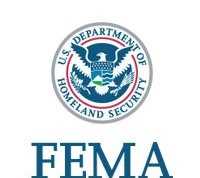Urban Land Institute Report Proposes Ten Principles for Building Resilience
Newly released report outlines bold steps for public sector leaders and the private real estate sector to proactively address climate change, economic stressors, and other risks
WASHINGTON (March 23, 2018) – A new report from the Urban Land Institute’s Center for Sustainability and Economic Performance outlines ten fundamental principles for building resilient cities and regions that successfully anticipate, respond to, and recover from both immediate shocks such as hurricanes and other extreme weather events and long-term stresses such as sea-level rise, poverty, and declining population.

Ten Principles for Building Resilience proposes bold guidelines for city and regional leaders as well as real estate and land use professionals to design, plan, and build communities and infrastructure in ways that address vulnerabilities related to climate change and other threats to prosperity and well-being.
The report advances the idea that resilience is a foundational characteristic of vibrant and healthy communities. It makes the case through examples and insights drawn from ULI’s extensive work with local decision-makers and community leaders on building resilience in disparate locations across the United States. ULI’s Advisory Services Program has convened more than one dozen expert panels, composed of ULI members with expertise in real estate development, urban planning, and other land use fields, in locations such as Seattle; Louisiana; Portland, Maine; and Miami-Dade County to assist these communities with short- and long-range strategies to develop resilience. Insights from these panels as well as a follow-up workshop chaired by former ULI Global Chairman Marilyn Jordan Taylor, a ULI governing trustee and professor of architecture and urban design at the University of Pennsylvania, were distilled into the following ten principles:
- Understand vulnerabilities
- Strengthen job and housing opportunities
- Promote equity
- Leverage community assets
- Redefine how and where to build
- Build the business case
- Accurately price the cost of inaction
- Design with natural systems
- Maximize co-benefits; and
- Harness innovation and technology.
“Ten Principles for Building Resilience offers a holistic framework for public and private sector leaders to build resilient communities that can not only withstand the impacts of a changing climate, but address social and economic vulnerabilities that may be holding communities back from reaching their fullest potential,” Taylor said. “These ten principles and their supporting, specific strategies empower decision-makers to integrate resilience into all aspects of community building. From adequately pricing the cost of risk and inaction to investing in green infrastructure that creates multiple benefits to harnessing the power of innovative technologies to respond to crises and recover, this report provides a playbook for communities on the path to becoming more resilient.”
A key theme discussed in the report is the critical role of the private real estate sector in transforming the market and leveraging greater investments towards more resilient design, buildings, and infrastructure. “The concept of the business case —the proof of return on the individual and collective investment—is a powerful tool to guide decision-making and assemble the resources to rebuild homes, businesses, and infrastructures of water, transport, and communications upon which the well-being of communities relies,” Taylor noted.
In addition, the report emphasizes a definition of resilience that goes beyond fortifying hard infrastructure and physical assets. Critical to building resilience are efforts to strength local housing markets, the workforce, and social networks as well as taking an equitable approach to resilience investments so that under-resourced neighborhoods—which are frequently located in areas with significant climate change-related risks such as flooding—have a fair shot at bouncing back after adverse events.
Ten Principles of Building Resilience received funding support from The Kresge Foundation and the New York Community Trust.
About the Urban Land Institute
The Urban Land Institute is a nonprofit education and research institute supported by its members. Its mission is to provide leadership in the responsible use of land and in creating and sustaining thriving communities worldwide. Established in 1936, the institute has more than 40,000 members worldwide representing all aspects of land use and development disciplines. For more information, please visit uli.org or follow us on Twitter, Facebook, LinkedIn, and Instagram.
About the Urban Resilience Program
The Urban Resilience Program is a program of the ULI Center for Sustainability and Economic Performance. The program provides ULI members, the public, and communities across the United States with information on how to be more resilience in the face of climate change. Through research, programming activities, technical assistance projects, and support of District Council activities, the Urban Resilience Program seeks to enhance community resilience with a focus on opportunities relevant to the built environment, real estate markets, and the land use policy sector.
contact: Trisha Riggs at 202-624-7086;













